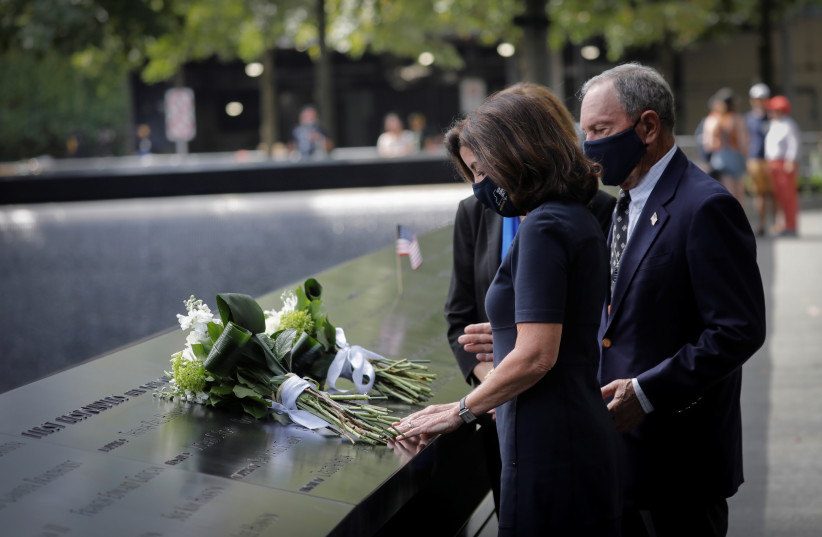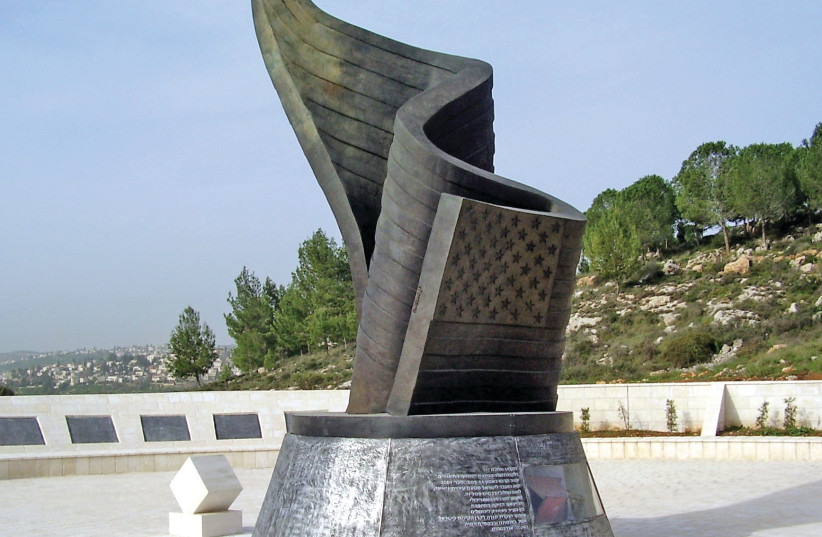Looking back on 9/11 feels different because of the generational divides.

This year’s anniversary of the 9/11 terror attacks feels different than memorials in the past. This is in part because time has gone by and more than two decades now separate us from the tragedy.
There have been other changes such as the US involvement in Afghanistan that ended last year after twenty years. That war began in the wake of the September 11 terror attacks. What that means is that the wars that began on 9/11 had largely ended only after twenty years. Many Americans want to put these wars behind themselves. People on both sides of the increasingly partisan divide agree on ending the “endless wars.”
Today, the US is involved in supporting Ukraine. The Ukraine-Russia war represents a new kind of conflict after decades of “counter-insurgency” or the “global war on terror.” This is a conflict against a “near-peer” rival: a resurgent Russia. This reminds some of the Cold War. In short, the days of fearing Bin Laden or ISIS are ostensibly behind us.
For what other reasons is 9/11 different?
There are other reasons 9/11 is different. Generations are growing older. People today can roughly be divided into those for whom the attacks were a lived experience, those that remember the attacks as children, or who were born after and don’t actually remember the attacks. The generational divide is also very different when it comes to those who saw the attacks as a formative event, such as those in their twenties in the 2000s, or those who were older and could compare 9/11 to other important events they felt had informed their childhood, such as the Cuban Missile Crises or assassination of President John F. Kennedy.
Beyond these realities, there is the fact that much of the world has moved on. Authoritarian regimes such as Russia, Turkey, Iran and China are meeting this week to continue to build a post-American world order. Some of these countries are at the forefront of spreading anti-American views in their own state media, and via their fellow travelers in the West.

When we look back this year at 9/11 then it is with a complex lens. We mourn those who were murdered. But we also struggle with the legacy that came after. Those who grew up in the 80s or 90s likely remember the pre-9/11 era as a more innocent time. It was an era where US power was unchallenged and countries like Russia appeared to be on the road to chaotic democratic transformation. China may have defeated pro-democracy protests in 1989, but most didn’t think it would rival the US.
Instead, it was films like Rising Sun in 1993 that made people wonder if it was Japan that would be rivaling the US economy. Films such as American Pie and American Beauty came out in 1999, offering either a comedic or cynical insight into that era. Fight Club also came out that year, as did Office Space. By 2001, Americans were watching movies about a different era of warfare; Pearl Harbor and Black Hawk Down came out that year; as if to remind people that the US was vulnerable to defeat on foreign battlefields. It wouldn’t be long before US special forces were being inserted into Afghanistan to fight the Taliban and find Bin Laden.
We now know that the search for Bin Laden would take a decade and that he would be found relaxing in a villa in Pakistan, a supposed American “partner” in the war on terror. Qatar, another US “partner” would end up hosting the Taliban for many years. So the US ended up spending two decades fighting itself basically, as its own allies and partners helped the very terrorists who Washington was supposedly pursuing.
Perhaps the pursuit was half-hearted, hampered by deep-seated prejudices and bureaucratic divisions that made parts of the US government beholden to regimes abroad that backed the very extremism the US was contending with. That janus-face of policy continues today as the US still has lobbyists who back working with Turkey, a government that supports extremists in Syria who are fighting against the US-backed Kurdish forces that fought ISIS.
This means one part of the government goes out and fights ISIS and finds new friends and allies; while another part of the government prefers backing the people fighting Americans. Of course, neither side wants this, but this is the end result.
For many people, tired of what they see as “endless wars,” there is now a cynical view of these foreign policies. Skepticism about the Biden administration’s Ukraine policy is clear among some right-leaning voices in the US. Even as the Ukrainians are liberating land and pushing Moscow back, the old days when being right-wing or conservative in the US meant opposing Russia and backing foreign countries that like America, no longer holds true.
Foreign policy has become balkanized and partisan. The short-lived unity after 9/11 is gone. It was harmed by disputes over George W. Bush’s pre-emption doctrine that led the US into Iraq. It was harmed by disputes about the Iran deal, and members of the Obama White House who called their critics the “blob” and wanted to jettison historic US allies. It was then further damaged by the Trump administration’s zig-zags on foreign policy.
The view from Jerusalem
Of course, the view from Jerusalem is different than the view from electoral districts in Ohio, or from the Potomac. Israel was already engaged in a vicious conflict against terrorism on 9/11, fighting the Second Intifada. In those days Israel’s war against Palestinian extremists was generally seen as disproportionate in the West and there was little sympathy for Israelis who were being bombed in restaurants and on buses. Countries in the Middle East that are now peace partners, were harshly critical of Israel’s policies.
The trajectory that was changed on 9/11 did change perceptions of Israel. It took a while, but many states in the region came to reject extremism. Groups like Al Qaeda, the Muslim Brotherhood, Hamas and others, got the cold shoulder eventually. The days when people thought Hamas was a moderate potential peace partner are probably gone. The sectarianism unleashed in Iraq and the massacres of Shi’ites and Yazidis have led many to understand that Al Qaeda and its fellow travelers are vile and genocidal; that they are not just “militants” or groups that are worth listening to.
They don’t have a struggle, they don’t seek justice, they are not just “radicalized” and “angry” and their choices to massacre people don’t stem from “poverty” or “lack of democracy.” These old canards about how every terrorist is forced to be a terrorist by “disenfranchisement” or how they have some grievances that can just be bought off, no longer hold water.
There was a short time after 9/11 when we were told that terror was some law and order issue and that if we just listened enough to their claims it could all be worked out. Remember the days when we had to listen to discussions about the film “Paradise Now” as if somehow suicide bombing can ever be discussed rationally? It can’t.
There’s no excuse for terrorism, no excuse for massacring civilians. Most countries now understand that. Unfortunately, they understand that because 9/11 was the beginning of a large number of horrid similar attacks including the Moscow Theatre siege (2002), Madrid (2004), Beslan (2004), London (2005), Mumbai (2008), WestGate Mall in Kenya (2013), Sinjar (2014), Chibok kidnappings (2014), Paris (2015), Belgium (2016), Lahore (2016), Karrada (2016), Palm Sunday massacre in Egypt (2017), Sri Lanka (2019) and many other attacks.
It was only the beginning
September 11 was the beginning of increasingly brutal attacks across the world all linked to similar extremist ideologies that are rooted in what some term jihadist attacks, or Islamist extremism. When we go back and look at the trajectory of those who planned and executed 9/11 we find a group of men who came from places like Egypt and Saudi Arabia. Many passed through Pakistan to Afghanistan.
Some had volunteered to fight in other places such as the Balkans, or Chechnya. They were men of privilege who saw a world in which law enforcement was fighting terrorist groups and they could exploit that because they had a worldwide network of cells. A decade after 9/11, these groups had shifted to become similar to ISIS. Whether it was Boko Haram in Nigeria or Al-Shabab in Somalia, or groups operating in Thailand, Indonesia, or targeting India and other countries; they had become terror armies and their extremism was reaching genocidal proportions. But they were largely deprived of their ability to execute their designs because governments began to get tough.
Ironically, by the time the US had left Afghanistan, the kinds of groups the US was fighting, like Al Qaeda and ISIS had been defeated. That doesn’t mean they don’t pose a threat. Their threat has shifted.
Where are such extremist groups today?
Extremist groups now operate more on the periphery of the Middle East and exploit weak states in Africa and Asia; rather than threatening the West in the same way Al Qaeda did. That means that where these groups continue to spread terror they do so in places like across the Sahel, or even Mozambique.
Extremist preachers who backed ISIS were more likely to be in Europe, than in the Middle East. Countries are cracking down on the free-wheeling days of the 1990s when too many people thought terrorism was romantic or could justify it so long as it “harms someone else.”
The extremists have also shifted, from desires to fight the West, to sectarian massacres or even fighting amongst themselves. Countries have co-opted them as well, using them, but clipping their wings.
Ankara, for instance, works with extremist groups in Syria, but the understanding is that groups like Hayat Tahrir Al-Sham, which was once linked to Al Qaeda, won’t attack the West. Even the Taliban pretend to want to crack down on groups like ISIS.
This is a major strategic shift in how terror groups operate and how countries confront them. The twin shifts, of generations in the West and the geographic shift of terror groups, represents the major changes that we see this decade as we look back on 9/11.
As reported by The Jerusalem Post
